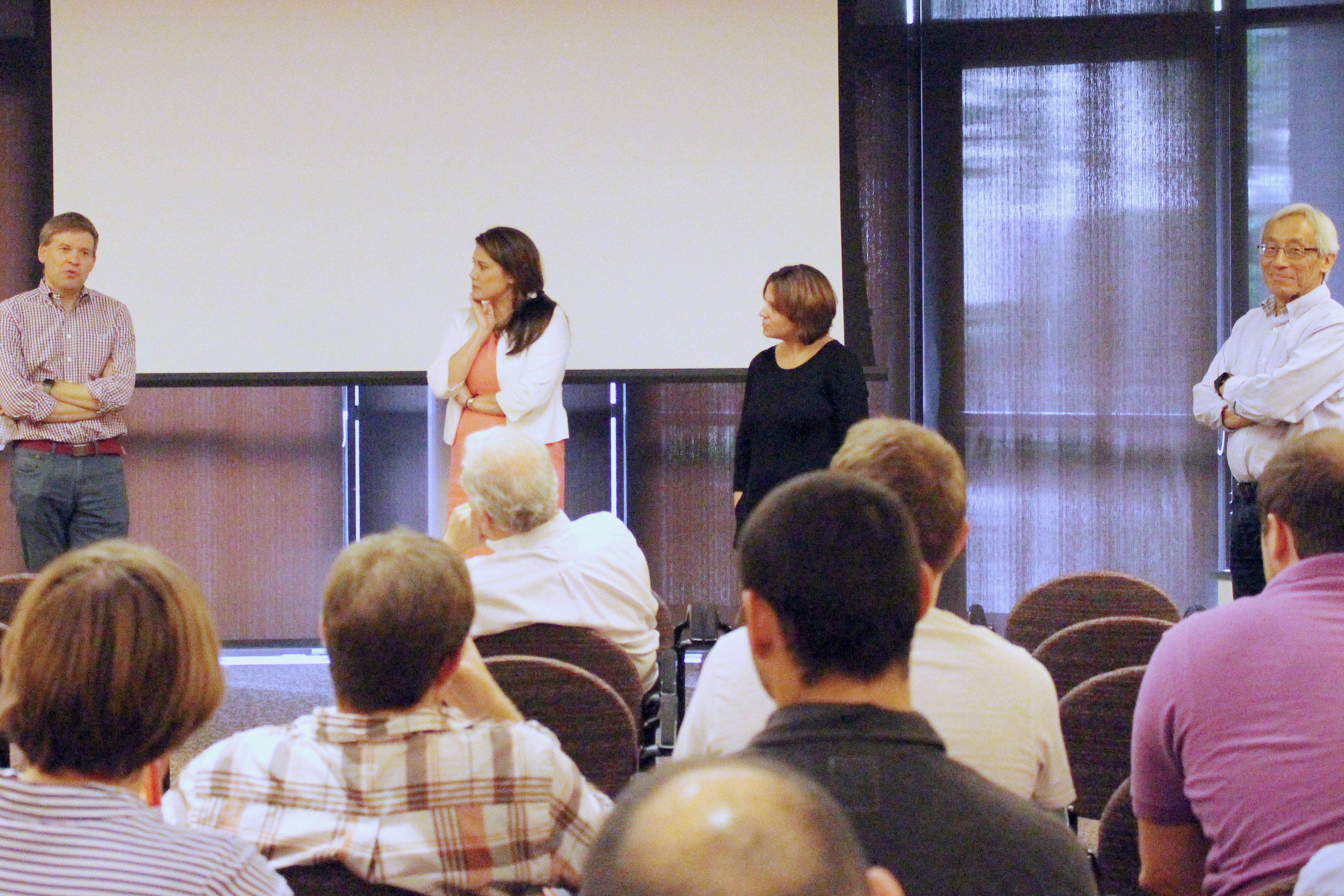UNC Lineberger’s second annual Integrated Training in Cancer Model Systems Director’s Career Symposium introduces scientists-in-training to a variety of career paths.

Media Contact: Laura Oleniacz, 919-445-4219, laura_oleniacz@med.unc.edu
Scientists in academia, public policy, and in the pharmaceutical industry spoke to University of North Carolina Lineberger Comprehensive Cancer Center’s scientists-in-training Thursday to shine light on future career options.
This was the second year that UNC Lineberger has hosted the Integrated Training in Cancer Model Systems Director’s Career Symposium, which was launched to introduce trainees to a variety of career paths that are open to them.
“As many of you know, the number of academic positions available to trainees is not equal to the number of trainees,” said UNC Lineberger’s Channing Der, PhD, Sarah Graham Kenan Distinguished Professor in the UNC School of Medicine Department of Pharmacology. “This was largely why we started this career symposium – to bring in (professionals who have pursued) other career directions, and to ask them to give an intimate view, a personal perspective, from their own careers in science on how they chose the direction they went into.”
The seminar included presentations and one-on-one sessions with David Kashatus, PhD, an assistant professor of microbiology, immunology and cancer biology at the University of Virginia School of Medicine; Anna Sadusky, PhD, director of regulatory science and policy for the American Association for Cancer Research; and Cindy Benod, PhD, scientist with the biotech company Warp Drive Bio Inc.
Kashatus described his path to academia, starting with a major in ecology and evolutionary biology as an undergraduate, to working as a technician, to graduate school in the laboratory of UNC Lineberger’s Albert Baldwin, PhD, William Rand Kenan Jr. Distinguished Professor in the UNC School of Medicine. He did a postdoctoral fellowship at Duke University before taking a job at UVA. In addition to emphasizing the importance of publishing work in high-impact journals, he said it’s important to pursue a niche line of research. He also pointed to networking as a key.
“Every interaction you have, no matter how inconsequential it seems, is networking,” he said. “It’s often more about listening, asking good questions, helping people when asked.”
After earning her doctorate and completing multiple postdoctoral fellowships with the goal of working in academia, Sadusky said her career led her in a different direction. She talked about balancing career objectives with her spouse’s and with parenting obligations, all while building up her resume. While working fulltime, she received a certificate in biomedical affairs. She highlighted her work in and outside of the lab during her training as a writer and editor for a postdoctoral-trainee-run newsletter, as well as working as a scientist for a biotechnology company, in helping her to build the skills necessary for a career in science policy.
For trainees interested in policy, she encouraged participation in fellowships such as the AAAS Science and Technology Policy Fellowship.
“There are many pathways to get to the same point,” Sadusky said.
Benod said her experience transitioning from academia to a career in industry taught her that “networking is everything,” and timing is crucial. Trainees should accept there may be some steps they have to take in order to transition to a career in industry, and they may have to be willing to move for work to key locations in the country that are hotspots for pharmaceutical development.
“Don’t be afraid of starting at any entry level position,” Benod added. “You’re going to be promoted very quickly if you’re good.”
